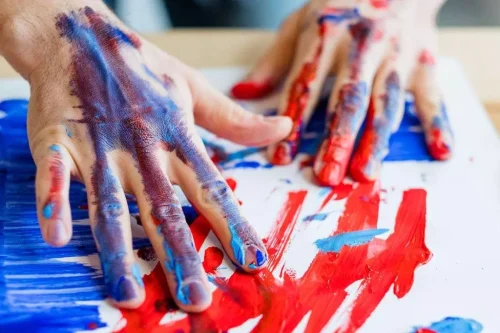
But if you’re in early recovery or beyond, it’s that much more important. There are many sources of inspiration one can draw on when recovering from substance abuse, and gratitude is the key that unlocks them. Inspiration and motivation work together to support a focus on recovery.
Addiction Remission: Navigating the Journey to Long-Term Recovery
It may sound tempting to go back to old behavior, but when we remember the consequences our addictions caused, it can and does stop us from picking up again. So much of recovery is helping others who are going through the same struggle. If you acknowledge the past and appreciate the journey in a positive, intentional way, you might teach others to do the same.
Effective Strategies to Stop Sugar Addiction
But a lot about practicing gratitude is focusing your perspective. You need to be realistic in recognizing that sometimes you’ll have bad days. It might be a little harder to find the thing to be grateful for on those days, but you can find it.
- The power of gratitude in recovery lies in its ability to shift your focus from the negative to the positive.
- We provide you with the tools, guidance, and community you need to rebuild your life and reach your full potential.
- It is easy to understand why these traits would be important in long-term recovery.
- There are plenty of ways to be generous each and every day, but recognizing the opportunities that come your way takes effort and attention.
- This is true for both negative thinking, positive thoughts, and gratitude.
Gratitude Works for Everyone—Not Just Sober Folks

Gratitude can help you appreciate your progress in recovery and the opportunities you have for growth and change. This can help you counteract the negative thoughts and emotions that fuel addiction. Active addiction can damage your physical and mental health, relationships, finances, and your self-worth. It can also make you lose sight of all the things and people in life you feel grateful for and zoom in only on the problems and difficulties you face. This can lead to a cycle of despair and self-destructive behaviors that may be difficult to stop. Thankfully, nurturing a daily gratitude practice is simple, and it can be woven into your day-to-day life.

This follows the principle that most people spend about 47% of their time worrying, resulting in anxiety, depression, and less enjoyment of what they are actually doing. These 8 ways to maintain an attitude of gratitude in addiction recovery will put you on the right path to staying focused on what’s important. Discover how practicing gratitude can enhance relationships and boost resilience. Gratitude can be an incredibly useful tool throughout your recovery. You’ll also notice the small improvements you make, the support you get from friends and family and the beauty of sober living.
Tips for Stopping Gambling Addiction
From despair to appreciation, the transformative journey of addiction recovery unveils the life-changing power of cultivating gratitude amidst the challenges of overcoming substance abuse. It’s a path that’s far from easy, often riddled with setbacks and moments of doubt. Yet, those who have walked this road know that gratitude can be a beacon of hope, illuminating even the darkest corners of recovery. The positive benefits of gratitude for everyone, including individuals in recovery, has long been noted. Only more recently have researchers started to pick apart the reasons it can be so helpful and beneficial.
- Nothing will ever be “perfect”, and challenges can be used to grow, learn, and even to give you a better perspective on good things in your life.
- When AA uses the phrase “An attitude of gratitude” they often mean “practicing gratitude”.
- It is also about developing gratitude, honesty, responsibility, and other essential life skills that can help you achieve lasting sobriety and healthy living.
- Countless studies have found that people who actively practice gratitude report higher levels of happiness and are less likely to suffer from depression.
- The long-term effects of gratitude on sustained recovery are promising.
The embrace earth gives us must be returned by our embrace of the earth, just as recovery from addiction is maintained by carrying the message of sobriety to those still in need. Humility, often overlooked and undervalued, holds the key to unlocking lasting freedom from the chains of addiction. It’s a concept that many struggle to grasp, especially when in the throes of substance abuse. Yet, this simple virtue has the power to transform lives, offering a path to recovery that is both sustainable and deeply fulfilling…. But the impact of gratitude in recovery isn’t limited to individual success stories.
How Does Gratitude Benefit Addiction Recovery?
At its essence, gratitude is feeling joy for the things you have in life. This isn’t limited to material possessions, although of course you can be grateful https://ecosoberhouse.com/ for the things in your life, too. Gratitude encompasses everything in life, including people, states of being, feelings, opportunities, and emotions.
Something to Feel Grateful For

Gratitude for even the smallest courtesies can promote a consistent sense of thankfulness. If someone holds the door for you or lets you merge into traffic on a busy road, make a conscious effort to be grateful. Once you’ve been able to adjust to this mindset of gratitude as your default, negativity will creep into your mind far less often, even when negative circumstances arise.
- By understanding the impact of gratitude in recovery and its role in psychological well-being, individuals can harness its power to support their healing process.
- Practicing gratitude in your everyday life is more than just saying “thank you” or being internally thankful for a life that is free from addiction.
- Or, make it a ritual to share one moment of gratitude at dinner each night.
- You’ve already taken the first steps on the road to happiness, and over time, your gratitude, mental health and general outlook on life will all improve.
- By practicing gratitude, individuals can develop a positive mindset that sees setbacks as temporary obstacles rather than insurmountable barriers.
- For example, you could thank a friend who supported you during a difficult time, write a note to a coworker who helped you with a project, or give a gift to a family member who made you laugh.
Meditation can help you deepen your gratitude and calm your mind and body. Another way to practice gratitude during your recovery journey is to tell others how much you appreciate them and what they do for you. Have you ever felt a warm and fuzzy feeling in your heart when someone does something nice for you? That feeling is called gratitude, and it’s one of the most powerful emotions we can experience. This is where showing appreciation for even small gestures of kindness or relatively minuscule positive occurrences comes into play.
